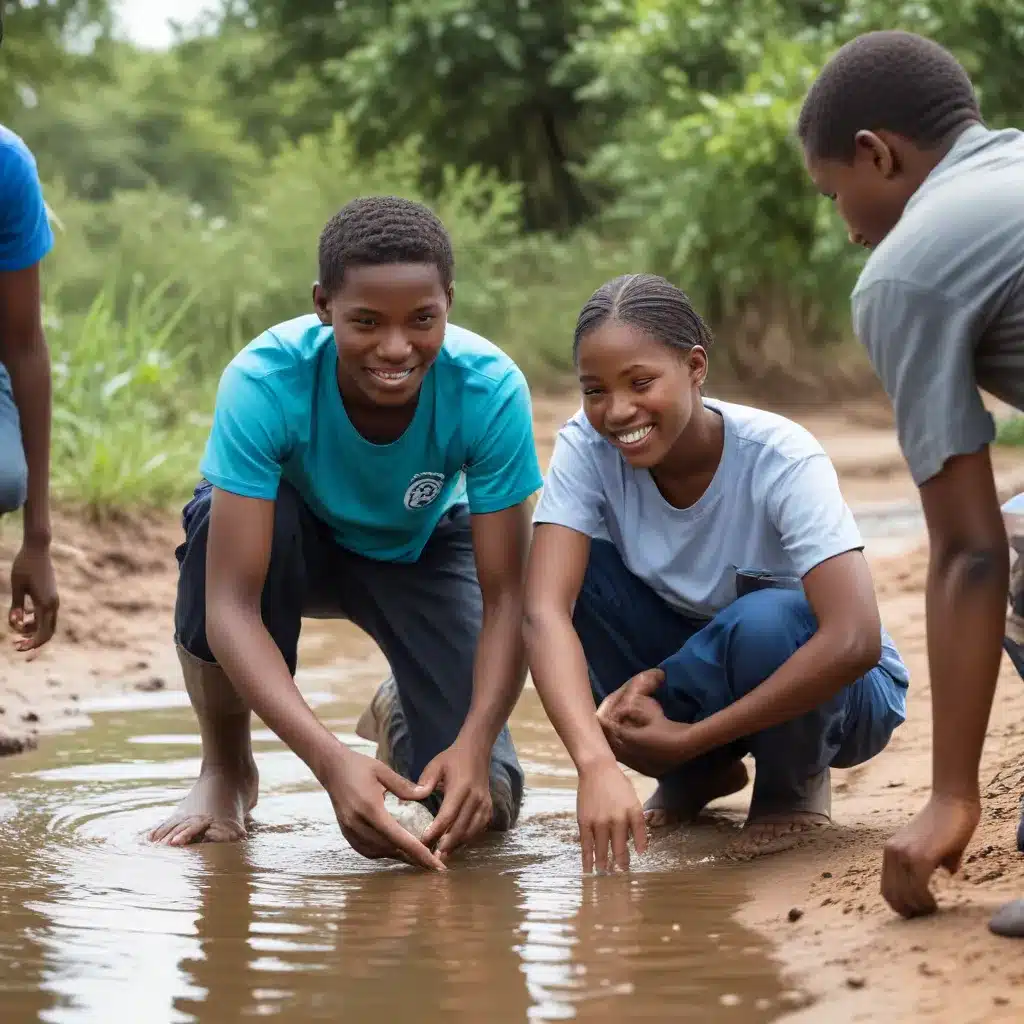
Empowering the Next Generation of Water Stewards
As the world grapples with the escalating challenges of climate change, the role of young people in shaping a sustainable future has never been more critical. Within the realm of water resource management, mobilizing and engaging youth can unlock transformative solutions that build resilience and safeguard this precious global resource.
The United Nations Sustainable Development Goal 6 – ensuring availability and sustainable management of water and sanitation for all – serves as a rallying cry for collaborative action. To achieve this ambitious target, we must harness the passion, creativity, and problem-solving abilities of the youth population. By equipping and empowering young people as active participants in water resource management, we can cultivate a generation of informed, engaged, and empowered citizens who will lead the charge towards a water-secure world.
Fostering Youth Participation in Water Stewardship
Across the globe, innovative initiatives are paving the way for meaningful youth engagement in water resource management. These programs not only educate and empower young people but also leverage their unique perspectives and talents to drive tangible change.
One such example is the California Environmental Quality Act (CEQA) program, which provides a framework for assessing and mitigating the environmental impacts of proposed projects. By involving youth in the CEQA review process, local governments can tap into their fresh insights and digital fluency to enhance community outreach, data collection, and analysis. This empowers young people to actively shape the decision-making that affects their local water resources and the broader environment.
Similarly, the Bureau of Indian Affairs (BIA) has spearheaded initiatives that engage Native American youth in water management and conservation efforts. Through hands-on field activities, educational workshops, and community-based projects, these programs instill a deep appreciation for the cultural and ecological significance of water while equipping participants with the knowledge and skills to become effective water stewards.
Mobilizing Youth for Climate Resilience
As the impacts of climate change intensify, the need for robust, adaptable water systems has never been more pressing. Young people, with their innate understanding of emerging technologies and solutions, are poised to play a pivotal role in building climate resilience.
The USAID Climate Strategy 2022-2030 highlights the importance of engaging youth in climate action, recognizing their unique capacity to drive innovation and influence their peers and communities. By nurturing youth-led initiatives that tackle water-related challenges, we can catalyze the development of nature-based solutions, water-efficient technologies, and community-based adaptation strategies.
One such initiative, spearheaded by UNICEF, empowers young people to actively participate in the formulation and implementation of climate policies. Through workshops, advocacy campaigns, and direct engagement with policymakers, youth leaders are shaping climate-resilient water management practices that safeguard vulnerable communities and protect vital ecosystems.
Fostering Inclusive, Intergenerational Collaboration
Effective water resource management requires the collective efforts of diverse stakeholders, with youth playing a critical role alongside established experts, policymakers, and community members. By fostering inclusive, intergenerational collaboration, we can harness the unique strengths and perspectives of each group to develop holistic, sustainable solutions.
For instance, the Integrated Climate Adaptation and Resiliency Program (ICARP) in California promotes cross-cutting partnerships that bridge the gap between youth and decision-makers. Through ICARP’s grant programs, local governments can access funding and technical support to engage youth in innovative climate adaptation projects, ranging from community-based water monitoring to the design of water-wise public spaces.
By actively involving young people in the planning, implementation, and evaluation of water management initiatives, we can cultivate a shared sense of ownership and responsibility. This, in turn, empowers youth to become lifelong advocates for water stewardship, driving long-term, systemic change within their communities and beyond.
Unleashing the Power of Youth-Led Innovation
Beyond their roles as engaged citizens and community activists, young people possess the creativity, entrepreneurial spirit, and technical expertise to pioneer transformative solutions for water resource management. By creating dedicated platforms and funding opportunities, we can unlock the innovation potential of the youth population.
The Joint Action for Water initiative, for example, could establish a youth innovation challenge that invites young people to develop cutting-edge technologies, digital tools, or community-based approaches to address pressing water-related issues. Such programs not only recognize and reward young innovators but also provide mentorship, resources, and networking opportunities to help scale their solutions.
Moreover, educational institutions can integrate water resource management into their curricula, fostering the next generation of water professionals, policymakers, and civic leaders. By equipping youth with the knowledge, skills, and hands-on experiences necessary to tackle complex water challenges, we can cultivate a pipeline of talented individuals who will drive the transition towards a more sustainable, climate-resilient future.
Conclusion: Empowering Youth, Securing Our Water Future
As we confront the mounting pressures on our global water resources, the active involvement and leadership of young people have become indispensable. By engaging youth in water resource management, we can harness their boundless energy, innovative spirit, and unwavering commitment to creating a better world.
Through collaborative initiatives, capacity-building programs, and dedicated funding streams, we can empower young people to become agents of change – shaping water policies, implementing sustainable practices, and inspiring their peers to take action. By investing in the next generation of water stewards, we are not only safeguarding our precious water resources but also cultivating a future where communities are resilient, ecosystems are thriving, and the vision of water security for all is realized.
The time to act is now. Let us join forces with the youth of today, unlocking their potential to build a water-secure, climate-resilient world for generations to come.

